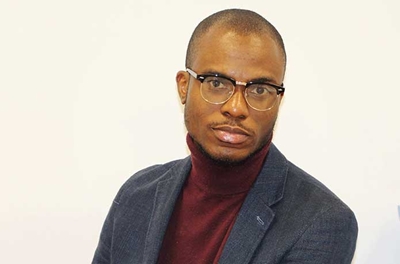Building a Better Auditor: Creating A Lasting Legacy
Blogs Mustafa Yusuf-Adebola, CIA, FCCA, CFE, CPA Dec 04, 2023

For internal auditors in the consulting world who are embedded in organizations for long-term assignments, the job can feel the same as any other internal auditing job — yet there is always a difference. Just like in any internal audit role, consultants can (and should) develop relationships. They may also develop a sense of ownership in the outcomes of their projects. However, consultants must keep in mind that their influence will end, and good ones help build enduring systems that continue to bring positive changes after they are gone.
Imagine for a moment, a seasoned internal auditor (let’s call her Raya), who consults for different organizations on an average of three to five years. Raya sets up internal audit departments, implementing specific projects and acting in capacity for established audit positions. Her array of experience ranges from working in structured and mature internal audit departments to startups just setting up their internal audit shops. Recently, after helping to set up the internal audit department in an organization, meeting the challenges posed by several departments, and helping the organization better appreciate the internal audit function, she is finally moving on to another audit project.
After four years at the organization, Raya worries about her legacy upon leaving. She has put in so much work at this organization and has a bit of emotional attachment to the impact she has made over the years. To have such concern shows Raya’s passion to ensure the relationship with the organization is not merely transactional because there is a business or employment contract, but transcendental.
What can she do to preserve her legacy?
Ultimately, Raya realizes she is not in control of the future. Thus, as invested as she is in creating a long-lasting impact, the best she can do is to influence events in the future through her actions of today.
The Legacy Mindset
A consultant understands that the first day is their last day, similar to a zero-day approach. Even internal auditors who seem themselves as permanent fixtures in their organizations can learn from this. In truth, internal audit leaders should start planning their exit from their first day. It sounds unrealistic and harsh, but the reality is that the internal audit function should not only be built on people but on a framework that executes successfully, irrespective of the individuals in the position. Though their knowledge, skills, and experiences are not discounted, missing a standard document such as the audit charter can later mar the work of any brilliant internal audit function.
Back to our intrepid consultant, Raya. Raya’s organization was used to assurance engagements, but it did not have experience with an internal audit that provided consulting services. Initially, there was some resistance to this expanded scope of internal audit’s work. Part of what Raya did to uphold internal audit’s resilience even after her departure was to work with stakeholders. Some departments loved the recommendations, but they also wanted Raya to implement them. However, by using the enterprise risk management framework, she involved and encouraged process owners to “own the risks” within their control. This spread the idea of responsibility on the part of process owners and an appreciation of everyone’s role in risk management.
In addition, Raya introduced a yearly State of The Audit event at the organization, where she educated stakeholders on the function of internal audit, obtained their feedback on past engagements, addressed misconceptions, and provided a comfortable atmosphere where everyone could air their concerns. It is important for audit clients to appreciate the reasons for audit queries and process gaps because clients are involved in the daily operations of these processes and responsible for implementing recommendations. This approach reinforced the idea that internal audit adds value and can be seen as a business partner in ensuring organizational goals are achieved.The State of The Audit event also improved the intelligence gathering of internal audit, which aided future audit plan development and fieldwork activities.
People who want to create legacies exhibit the trait of leaders. Whether you are a consultant or a chief audit executive with 15 years at the same organization, it is important to think about what happens after you leave.
In their book, “I Can't Make This Up: Life Lessons,” Kevin Hart and Neil Strauss explain, “One day you won’t be here, but your legacy will. Even if the earth is gone, you contributed to that. If you’d done something different, maybe the planet would have survived another minute, another year, another millennium. Everything you do matters. So, treat it like it matters.”


